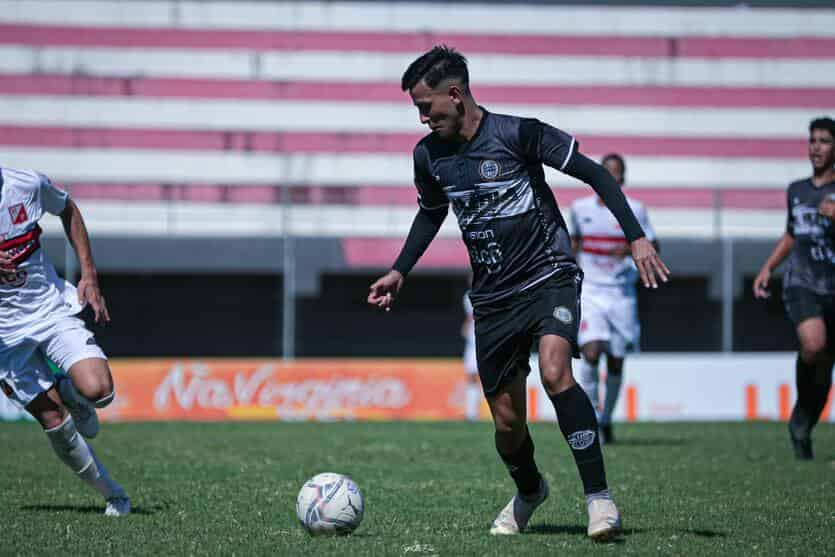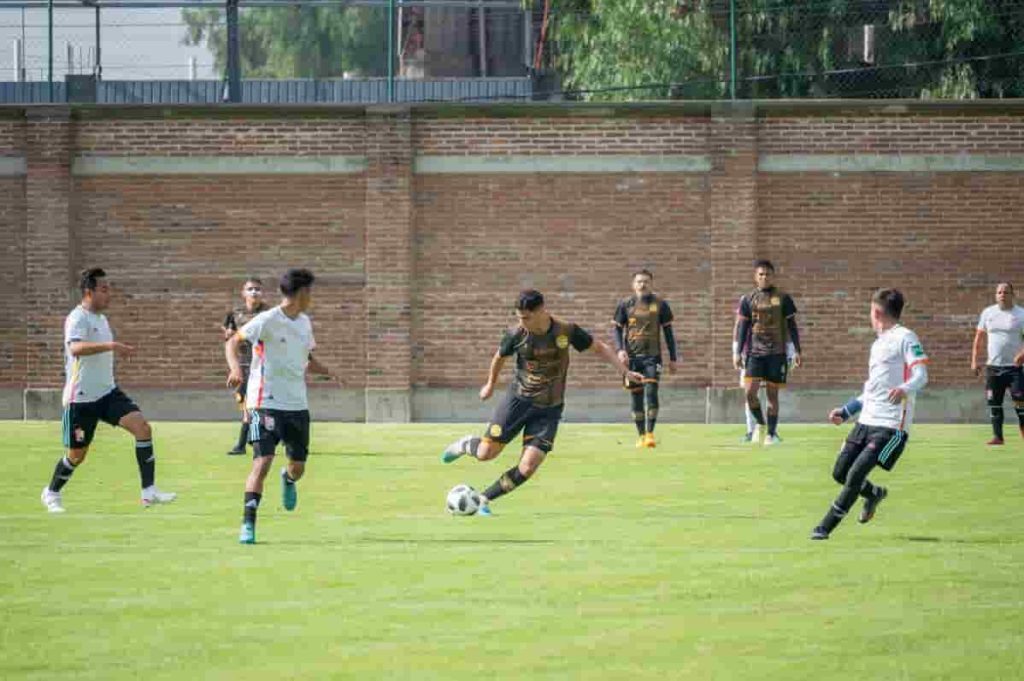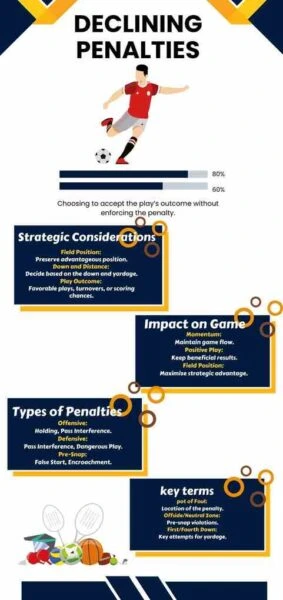Penalties in football like NFL football penalties are what can swing the direction of a match. Therefore, every player, coach and fan should be aware of the rules and how they’re enforced. One phrase that repeatedly appeared when watching the games was “decline penalty.”
If you’ve ever wanted to know what it means, how it works, and why it’s essential, this article is for you. From the decline penalty to its effects on game play and how it impacts match results.
What does penalty declined mean?
When a declined penalty is committed, the referee will announce a penalty on a specific team and offer the other team a chance to accept or decline the penalty. Declining a penalty, a common term used in the NFL, means the team affected by the penalty decides not to accept the punishment for the penalty.
Instead, they want to leave the original play or outcome, ignoring the penalty. This is frequently a decision made when the possible penalty doesn’t help the team or when the result of the play is better than if they enforced the penalty.
For instance, if a team commits a foul like a holding football penalty, though the other team will have a lot of yards to gain, the defense can decide against it and let it be the play.

Why would you decline a penalty in football?
On the surface, the idea of a team declining a penalty seems counterintuitive.
Whether or not to reject a penalty often depends on the scenario and exact game circumstances. Game and offensive coordinators evaluate the play and the penalty’s severity to determine whether accepting it would help or trouble them. Here are some of the most frequent reasons a team might opt to decline a penalty:
Better Field Position:
If the play’s results help the team more than the penalty amount would, they can decline the penalty. For example, during a football game, a long pass completion or significant gain by the offense may result in a penalty on the defense, for which the defense can decline the penalty for football, keeping the positive play.

No Yardage Backward:
The signal for an offense to step backward occurs when teams receive a 15 yard penalty similar to those in football league standards. This penalty creates significant hurdles for continuing forward progress. Likely penalties exist so teams with numerous yards gained can choose to refrain from penalties that would lead to backward movement.
Playoff Implications:
Every choice remains crucial throughout playoff contests as well as regular season contests. Teams make the decision to decline penalties whenever a ruling does not benefit their total achievement on a given play.Check out examples in articles like 1st and 15 for more on in-game decisions.
Types of penalties in football:
Penalties are a routine part of football, and learning more about the different types can give insight into why a team might decline a penalty. The following are some of the most common types of football penalties:
Holding Penalty:
This is one of the most common penalties in football. It occurs when a player illegally grabs onto an opponent or their jersey. In NFL rules and penalties, this is usually a 10-yard penalty. If the play provides a more significant advantage to the opposing team than the loss of yardage, the opposing team can refuse this penalty.
Personal Fouls:
In the personal fouls NFL, there are two types of personal fouls, unnecessary roughness and unsportsmanlike conduct. These miscues can result in significant yardage losses. The other team might decline this penalty if the offensive team is already in a good position.
Pre snap Penalties:
It refers to penalties before the snap of the ball, such as illegal motion, false start, offside violations, etc. These are often observed during American football penalty, such as when players move over the scrimmage line before the snap.
Offensive/Defensive Pass Interference:
When a player, typically a receiver, makes contact with an opponent to prevent them from catching a pass. However, these are often accompanied by a significant gain or loss of yardage, based on the placement of the offense and defense on the field.

Declinig Penalties American Football:
Teams in Penalty American football exercises the option to decline penalties based on the multiple game situations. A team will choose to decline penalties when such action brings them an advantage on important game situations. Penalty meaning in football includes driving the ball deep into the oppositions territory as illustrated during pass interference or other offenses. A defense team can drop the penalty so they can let the offense continue the play when the team reaches either a first down or scores a touchdown.

The Effect of Declined Penalties on the Game
Declining a penalty can completely change the flow of a game. In certain contexts, the offended team may refuse a fine to hold its placement and preserve the sport’s motion. With this decision, teams can sidestep setbacks brought on by American football penalties, which can throw off their offensive or defensive game plan.
For example, NFL rules and penalties allow a team to decline a penalty on beneficial unsuccessful plays. When an offensive team scores a touchdown, it can decline the penalty to avoid a loss of yards.Strategic decisions like these often involve evaluating the strongest NFL player matchups on the field.
Conclusion
Penalties and the ability to decline them are essential to football strategy. Declining a penalty can significantly affect the game, giving teams the chance to exploit advantageous situations. NFL personal fouls, pre-snap penalties, or 15-yard penalties, are just a few instances of the many penalties analysed and measured in football to reflect their true tactical nature as a sport.
Understanding these concepts can help players and fans understand the game’s nuances, especially the decisions about rare penalty calls during high-stakes moments of a match. Decline of nfl is another layer of strategy, an indication of how much thought and preparation goes into every decision on the field.
FAQS:
What is a holding penalty in football?
A holding football penalty is when a player illegally grabs or holds an opponent or their shirt. Rule & Penalty NFL: 10-yard penalty
What a the penalty in football?
A declined penalty is when the team on the receiving end of the penalty chooses not to take the penalty and instead keeps what happened on the previous play.
What is the penalty for getting a penalty in American football?
If a team benefits more from the play than the penalty, they may decline it.
How many yards is a holding penalty?
The NFL rules and penalties for a holding football penalty are generally 10 yards.
What is a 15 yard penalties in football?
In football matches 15 yard penalties result in either 15-yard losses for the penalized team or in 15-yard distance benefits for opponents who do not receive penalties.
